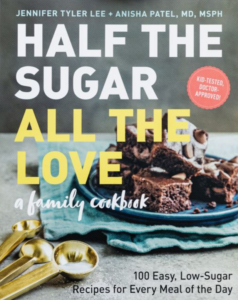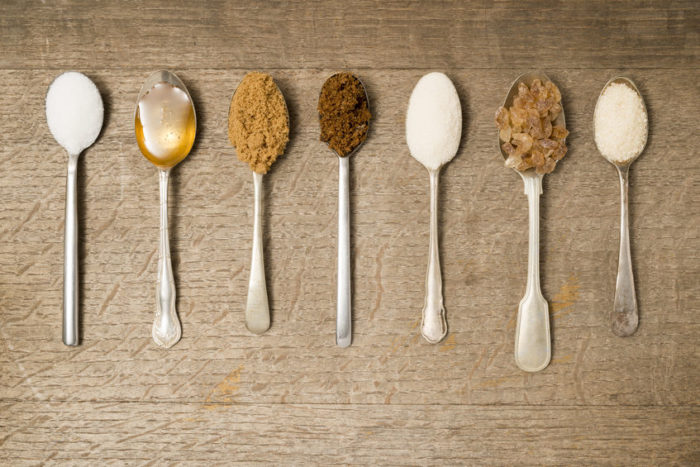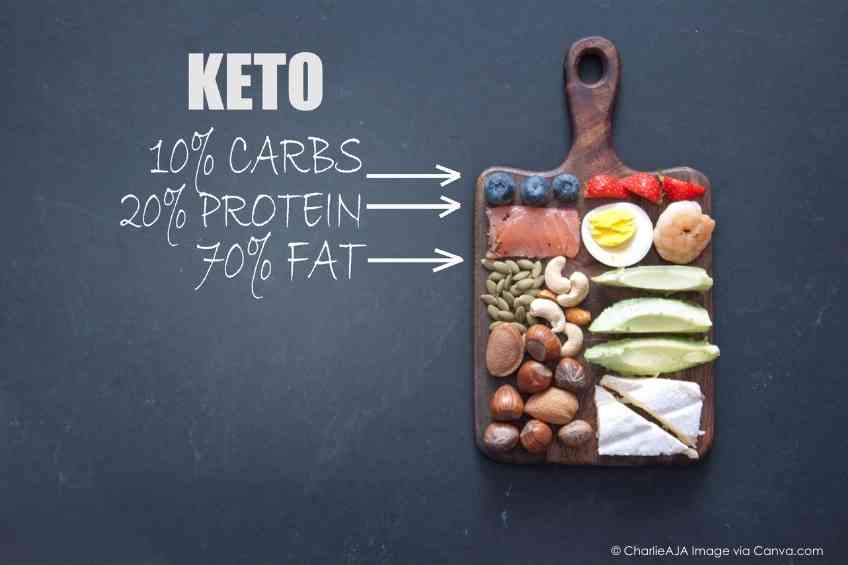We are all well aware of the dangers of consuming too much-added sugar. Take one scroll through Netflix’s documentary library and you’ll see plenty of sweet-frightening titles such as Sugar Coated, That Sugar Film or Fat, Sick and Nearly Dead. The information and the warnings are clearly out there. Unfortunately, added sugar remains a principal ingredient in many diets. So what’s the solution? Jennifer Tyler Lee, author of Half the Sugar, All the Love: 100 Easy, Low-Sugar Recipes for Every Meal of The Day, may have an answer. She recently chatted with WellWell on the myths about sugar related to added sugar consumption and how we might be able to put a lid on the issue.
What are the biggest misconceptions about added sugar and the foods they may or may not be in?
There is a misperception that unrefined sugar, like honey, is healthier than refined sugar, like granulated sugar. Many people think that swapping table sugar for something less refined, like honey or maple syrup, is a better way to sweeten it. The truth is while honey does have some beneficial properties, you’d need to drink a cup of honey to reap those nutritional benefits. You’re better off getting those nutrients from fiber-rich fruits and vegetables. Less refined sweeteners like honey still count toward your daily added sugar limit, which is 6 teaspoons per day for women and 9 teaspoons per day for men. All added sugar is sugar. It’s important to reduce all types of added sugar, honey included.
 Are you saying that honey has no nutritional value?
Are you saying that honey has no nutritional value?
Honey does have some beneficial properties. It has vitamins, minerals and antioxidants. It can be helpful in easing a sore throat, for example. But the amount of honey you would need to consume in order to reap the benefits of those vitamins, minerals and antioxidants is quite high—many times more than the amount of added sugar you should be consuming in the day.
Is this true for other natural substitutes?
The problem with natural sugar substitutes like Stevia or monk fruit is when you consume them, they’re often much sweeter than sugar. Stevia, for example, is 200 to 400 times sweeter than sugar. That trains your palate to prefer sweet foods. Sugar substitutes tell the “sweet center” in your brain that sugar is coming. When no sugar or calories follow, it leaves your brain craving more.
What is the best sugar substitute?
Fiber-rich fruits and vegetables are the best substitutes for added sugar. Fiber is the key. It helps slow the absorption of sugar, making it easier for your body to process. In Half the Sugar, All the Love we advocate for a moderate approach to reducing added sugar because evidence-based science suggests that no-added-sugar diets are not sustainable. There’s recent research that shows people on a more moderate diet with moderate amounts of sugar, fats, and carbs actually have better outcomes in terms of weight and health metrics than those on restrictive diets. The key is learning how to have the foods we love in a healthier way. Not by eliminating added sugar entirely, but by just reducing it and sweetening it with whole fruits and vegetables instead of added sugar.
How would you recommend parents approach this without risking their children losing out on the normal childhood delight of eating sweets?
It’s fine to have a treat once in a while. During birthday parties, Halloween, family events, or special occasions there will be indulgences. As long as it’s not every day, those indulgences can be part of a healthful diet. If you prohibit added sugar entirely, it’ll become the forbidden fruit—thus making it that much more alluring. The key, again, is moderation.
Aside from making the food sweeter, does sugar have any productive function?
Sugar acts as a preservative. It helps food last longer. For example, when you make the Chewy Chocolate Chip Cookies in Half the Sugar, All the Love, which are sweetened primarily with dates rather than added sugar, those cookies will stay fresh for between two to three days as opposed to four to five days. Sugar also provides texture. Sugar holds things together in baked goods. If you take it out, it often becomes crumbly. Remastering the recipes in Half the Sugar, All the Love took over a year and a half to develop, because reducing added sugar while maintaining flavor and texture is challenging.
And this speaks to a larger societal issue that I wanted to ask you about. How do we shift since sugar is so ingrained in what we eat, specifically for young children? The CDC reports that two-thirds of boys and girls under the age of 12 consumed at least one sugar-sweetened drink every day. How do we as a society shift that?
Kids consume their weight in added sugar each year. Sugary beverages, snacks, and hidden sugars are a problem. The best way to take control of your health, to reduce your added sugar consumption, is to cook at home when you can. For times when you rely on packaged products, remember to read the nutrition label and try your best to choose products with low or no added sugar.
So ultimately if we can’t and maybe shouldn’t eliminate sugar, is the goal to control our consumption?
That’s it. It’s all about moderation.
 About Jennifer Tyler Lee
About Jennifer Tyler Lee
Jennifer Tyler Lee is an award-winning author, game creator, self-trained home cook, and healthy eating advocate. She earned her Nutrition and Healthy Living Certificate from Cornell University. Jennifer’s innovative and delicious low-sugar recipes show that quitting sugar doesn’t mean giving up the foods you love—the trick is to sweeten them naturally with fruits and vegetables instead of added sugar. She’s a featured contributor at Red Tricycle and shares new recipes each week on her blog, www.52newfoods.com.
Learn More
Facebook: @jennifertylerlee
Instagram: @jennifertylerlee
Twitter: @jtylerlee
www.52newfoods.com












